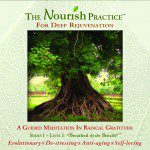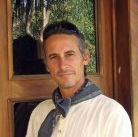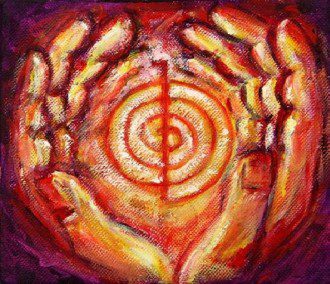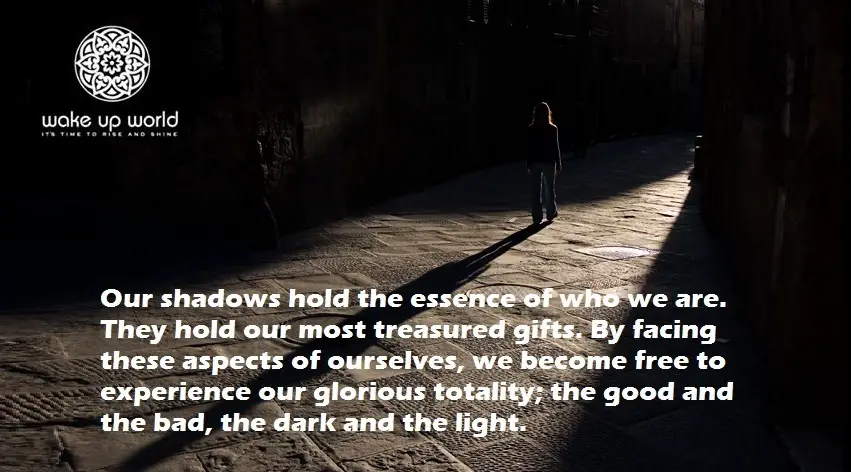Contributing writer for Wake Up World
Breaking the Silence.
This article was inspired by the documentary video, Breaking the Silence Truth and Lies in the War on Terror. It moved me deeply. It brought up my outrage, my sadness, my helplessness, my love, my hope, my passion — all of which I share with you below.
Whether you watch the video (below) or not, the article will still make sense to you. It’s not an easy watch, but well worth the while.
As John Pilger says in the introduction, “This film is about the rise and rise of rapacious imperial power and a terrorism that never speaks its name, because it is our terrorism.”
[pro_ad_display_adzone id=”110028″]
We are all disgusted with videos like this that reveal what might be closer to the truth of what American and other first-world foreign policy is really about. The effects on people’s lives and on the Earth itself are devastating, and frankly, almost unspeakable. What is done to people, to animals, and to this gorgeous planet is insane. While we all have hatred, violent, and evil tendencies, for most of us, it’s not as big a part of our agenda as it for elite imperialists.
And this is the difference between “us” and “them.”
As I watch this documentary and feel my own sadness and disgust, I remember why I spend so much time encouraging emotional shadow work, why a bulk of my energy has turned from outer activism to what I call inner activism — because when we don’t do the inner work we too easily become the ones who despoil what is beautiful, in big and small ways. We make monsters of our lives and we create enterprises that take on ghastly identities of their own, called corporations. We raise children who are more prone to turn into monsters, who can then affect the world without wisdom. Some become those who govern without giving, who take without returning, who speak without feeling, who live without loving.
John Pilger: Breaking the Silence – Truth and Lies in the War on Terror
Emotional shadow work makes us deeply human and infuses us with wisdom when we stay the path of staying through our deepest hurts until they turn into gold, into rich inner resources. Emotional shadow work is not a pessimistic or negative undertaking. It is just the opposite. It is radically positive an uplifting because it gets to the root of our negativity, our violence, our problems, and heals them at the root so that we can feel more loving and understanding. Emotional work also awakens our creativity, passion, purpose, and sense of meaning.
We may try to attack all the effects of greed, violence, and injustice outwardly, and whatever truly good, solid progress made is good news. This is the good fight we are all called to fight, to whatever degree, in the world. But as we all know, the horrors continue year after year, decade after decade. There are always new wars, new massacres, new famines, new cover-ups, new conspiracies. To me this indicates there is something else afoot, something more fundamental to these effects, that has not been collectively healed, sufficiently dealt with, by you and me and all of us together.
I think this violent pattern has its roots in our collective human shadow, whose heart is our collective emotional lives. This “collective,” however, does not mean that the problem is “out there” but that it is in me, in you. And it is my job, and your job, our adult responsibility to the whole that we all share to do something about. This is what I call root activism, or inner activism — becoming the people with values and the inner emotional and intellectual resources capable of living differently, capable of giving ourselves to the greater good, which we demonstrate through our actions, our creativity, our wisdom, our healing path, our presence in the world. To liberate our inner lives, which begins with radical honesty, is to be really humble with ourselves.
This means that we activists who fight for good, including myself, need to be aware of our own shadow, be honest about we fight for, and more importantly perhaps, why. This is because unreckoned deep wounds in us create victims when there may not be one (think witch hunts and weapons of mass destruction), while a lack of self-honesty causes emotional wars without proper analysis, as Bush, Cheney, Rice, Obama, and others have done. We must not follow their example, yet to do so, we must not think that we are entirely unlike them. So, we must also get in touch with the parts of us that are like them, and work on ourselves. And this too becomes how we are unlike those who don’t work on themselves.
We have to work at being good thinkers (which is a practice), men and women in touch with fairness, keeping agreements, able to listen and to communicate compassionately, to respect one another’s boundaries, and to create things which truly help others and with the least amount of collateral damage. These are outer actions, which we can ascertain for ourselves, with feedback from others who want to help us, and from objective data.
[pro_ad_display_adzone id=”110030″]
Uncommon Integrity
Yet, there exists an invisible realm, which is much easier to hide from the world. In fact, we are often the only ones privy to this domain. Only our own honesty and integrity are aware of these parts of us. Because it is so hidden and private, it is most apt to corruption and evil, just like the hidden policies of government officials and all that happens behind “closed doors.” What goes beyond the closed doors of our own hearts? We have to open these doors of our psyche, if only to ourselves, in order to make sure that who really we are in there is of the same quality and value as what we want the world to see of us. This is uncommon integrity.
The inner qualities to cultivate, so as not to become the dictators we despise outwardly, include the capacity to feel our feelings as they are at face value, to be honest with ourselves both intellectually and emotionally (which helps us manage our emotional pain), to appreciate good science and good thinking as gauges to external reality. We also want to take an honest look at if we really want to be loving, without judgment, and work with what we actually discover about ourselves. These are inner actions, the invisible realm of our inner lives, behind the closed doors that open to the world. No one may ever know these parts of us hut us, yet they determine the quality of our lives. Only we know their contents, so only we can be responsible for them. The degree to which we do is a measure of our integrity.
This is the domain of true change, of true responsibility. It is the equivalent of “who we really are when no one is watching.” Deep in our hearts we know right from wrong. We just have to get down that far and see through the bias of our pain. Otherwise, if one day we reached a position of outer power, we might do the same as what we see in the despots and other monsters who rule our world today. Of course, we would think that we are doing good, but to the rest of the world, we would not be. So, this conundrum of being able to see ourselves clearly is crucial. Realistically we will likely always be deluded to some degree about who we really are (I am not referencing a mystical spirit or soul, but discernable personality and character traits), but the point is that we can forever better ourselves, especially by embracing the parts of us that are less than we want them to be, and less than we know they can be.
Emotional triggers create bias and this bias creates beliefs and enemies and unnecessary aggression. Real wounds and hurts, like those of the broken families in this documentary, likely have left them forever angry, disgusted, and vengeful towards those who killed their families. They might wage their own wars, as the cycle of war and violence continues, and they will continue to suffer sorrow and create sorrow, living off the grim rewards of vengeance.
In the same way, you and I also have our sorrows, our losses, our traumas. Our pain gets passed on as well to the degree that we do not work out our hearts and find radical forgiveness as the result of feeling all our feelings (this does to mean expressing them to others, necessarily). Unlike those in poverty-stricken and dictatorial Afghanistan, we have outer resources to help with the inner work to minimize the effects of emotional hurt. Yet, outer resources do not guarantee that the inner work happens. Even the prisoners of Nazi war camps, with little to no external comfort, were able to find incredible inner resources under atrocious outward conditions. Elie Wisel, who was a child at Auschwitz, speaks to some of this in this potent video clip with Bill Moyers.
Facing Hate – Bill Moyers with Elie Wiesel
And here is a comment from on an interview that speaks to the dynamic of inner poverty and outward violence:
“I think the Nazis and their supporters did what all abusers do. They refused to look at their true motivations, perhaps feelings of insecurity and low worth after WW1 and probably also lots of anger about the repressive, cold way in which it was typical to treat children there at the time. Like all abusers, they did not want to do the work of dealing with those feelings, so they took them out on other people. Then, as long as they were not being self aware or honest anyway, they lied further and said, “I am not bad because I do bad things to you, I do bad things to you because you are bad.” I really think the degree to which a person is kind or cruel is the degree to which they are willing to be self aware and honest, and the degree to which they are willing to do that depends on how selfish they are. Come to think of it, that’s really not very deep. Oh well. Selfish people are mean, mean people are selfish.”
Inner Poverty
Because the inner domain of our psyche is hidden, it is to a degree protected from the reign of outsiders, certainly more so than our clothing and actions. Therefore, we alone can heal that place, as can each of the people in the documentary, or concentration camps, to some degree. Indeed, the choices we make about our attitude and ability to experience emotions in our bodies is an under-recognized freedom, one we learn to exercise especially when our external lives fall apart.
When I first heard about Hitler’s autobiography, Mein Kempf (“My Struggle”), I imagined it written during the Second World War. I scoffed, thinking, “How arrogant. He doesn’t know struggle like those he tortured.” Years later, though, I lessened my judgment of him, as I began to learn what a burden one carries when one lies and violates and kills others. I imagined Hitler’s struggle to be the self-hate he had for himself. Even though this is not what the book is about, point is it takes some ugly insides to commit the kind of crimes Hitler did. What abusers want is to make others as miserable as they are, and if the abusers feel dead inside, they might as well want to kill you. If they don’t kill you, to some degree, it’s your inner life that you can save through your inner freedom to feel as you see fit, and in my experience, to feel and pass through the pain in order to rise again.
The war of aggression waged by the monster parts of us are not only evidenced in the power to kill others in far-off lands. We can be monsters with our families, with ourselves, and in the work we pursue. We can look at ourselves to find where we are unfair, when we won’t listen to another, how we won’t listen to and see ourselves, what we refuse to feel, and when we are dishonest and we don’t correct ourselves, even though our bodies alert us when we are dishonest, if we are sensitive and honest enough to feel it. All this is the real courage that is perverted in the apparent courage of fighting wars and killing innocent people and protecting the lie of freedom. This is the inner activism that helps prevent us from being tyrants in small ways, from hypocrisy, from small injustices that that turn into bigger ones. And we engage this inner work to help console our own hearts for the cruelty and devastation we see in the world today, as I have done today and am doing now by writing this.
Self-Honesty
To our benefit, there are many tools to help us become more decent people, so we don’t become the tyrants we outwardly hate, so that we can uncover the places where we ourselves are tyrannical, for which we can muster the great forgiveness necessary to do the work of rectifying ourselves. And it’s not just tyranny we want to root out, but the places where we are not as giving and honest as we could be, if we could only move beyond our comfort zones a little bit and bear a little pain as good medicine for change. All this “rooting out” is radical self-compassion. This is the hero’s path through the tremendous power of humility.
In the spirit of honesty, I will share my own self-reflections while watching this movie, which sprang up in me unbidden as I was simply aware of how my body felt and the information my unconscious presented to me. I saw the places where I am selfish, where I excessively hoard of simply “save” money for future needs. I reflected on how much material wealth I have compared to the people in the footage, and compared to some of my friends, something I have noted and felt for many years, as I have visited, watched video, and read accounts of what others don’t have in far away places. So, I feel into the place in me that “saves,” even hoards sometimes what I can, and I feel this entitlement to live a good life, to have what I need, and below that a fear of self-worthlessness, and this lack of self-worth is connected to my withholding sometimes, ironically enough . . . because I can’t give away what makes me think and feel I am worthy (and I get the intuitive, body-hit that by giving more away is the only way I will be able to heal that place that holds onto material stuff excessively). And then I feel guilty and I feel remorse sometimes to have anything saved when others I see need it now—a difficult awareness this is.
I even remember several years ago watching a film one night about the Amazonian Indians who were being ripped from their land, tortured and murdered. At the time, I was in the process of building my house and planning what kind of flooring to install. That night said to myself, “How can I consider what kind of flooring to install in my new house when these people suffer like this?” I still don’t have a proper floor and I might just leave it as plywood and give the money instead (or additionally) to the Amazon Watch group, as I felt called to do that gut-wrenching night.
Yet, associated with my own turmoil is also this feeling injustice, the places I have been ripped off by others and my wanting to take back what was mine, which I generalize to life in general and thereby make “collective” to mean everyone besides myself as “they” that have taken from me, which includes you, who has never taken anything from me, and so I might also take from you (especially if I feel you want to steal from me) because I have generalized you into “they” that took from me. This “they” is the reign of terror in myself, not unlike the terrorists accused by the government officials that lie to us, whom we hate and despite and call out. So, to work with this inside myself, when I went to Mexico this year I found the place of charity inside myself and made it a point to give more to the people with less there, even in cases where I knew I was being charged more than a Mexican would be. And I’ve found other ways to give, and simply acknowledging my own shadow helps me do it more and more.
All this does not mean that generally speaking we cannot simply discern what is good and what is bad (at least in effect, if not deed), what is violent and unjust, and what is fair and humbly courageous. It’s just a tricky game because Monsanto CEOs and Bush and Rumsfeld (and I, for that matter) will all attest to doing good. But like Elie Wiesel says, who are we to judge? Perhaps the compromise — so that we do not overlook blatant harm by over-philosophizing — is to judge the effect, idea, and the act, not the person. For example: The Nazis killed people. Our military has killed civilians all over the globe. So, can we agree that killing people we think different is a bad thing to do? I would say yes. Are the people who killed them bad? I don’t know. Should we always judge a man by his actions?
When we invest our lives in something — whether it’s a project, a set of beliefs, or a line of work — we have a hard time seeing its faults, because this would mean that we are bad and have failed. Yet, we can change our perspective to see that failing is not bad, and in fact, is crucial for our sanity, if only because we all “fail” as a fact of life.
Shadow for Light
The failing side of life is part and parcel of the shadow. So, to embrace shadow is to embrace the possibility of failure, which is to be able to correct oneself, which is to better one’s life. A failure to see fault is ultimately a failure to heal, which almost guarantees malice. So, without doing the inner work, we don’t really know if what we are doing and how we are acting is true and good, as our own heart and mind would inform us. And the only one who does know is you, or me—the one doing the inquiry. We may be informed that what we are doing is unhelpful, and we might even realize it ourselves in a sober moment, but the capacity to do anything about it requires emotional intelligence (knowing what we are feeling), emotional literacy (knowing the terrain and interrelatedness of our emotions), and emotional courage (the power to embrace, acknowledge, and feel our face-value feelings, and thereby change our actions and be changed by our inner process).
Most of us can admit that we are not perfect. But to take this axiom home and really live it means admitting our shortcomings. We have to do the honest, inward inquiry because we can all find tyrants in ourselves, which can grow like weeds when not tended to, when not held in check by charity, justice, generosity, and acknowledging the emotional underpinnings and sense of lack we feel, which causes us to take and to take unjustly, to withhold our love.
Asking the world to do their shadow work is a tall order and about as unlikely to occur as Santa visiting me this Christmas. But, to those of you who care enough to care a little bit more, I invite you to use your good thinking and your honest feeling to become a better you. This way we can heal ourselves, not be hypocrites, and better understand the sociopathic and deeply wounded patterns operating in the world today.
The Nourish Practice
 Jack Adam Weber’s “The Nourish Practice” is an easy, guided meditation-Qi Gong practice in radical gratitude and self-love. It is an Earth-based, body-centered practice — at once physiological and ecological — that is deeply relaxing and replenishing, especially for modern-day burn-out syndrome, and requires little physical effort. It “resets your nervous system” and fosters a rich inner life.
Jack Adam Weber’s “The Nourish Practice” is an easy, guided meditation-Qi Gong practice in radical gratitude and self-love. It is an Earth-based, body-centered practice — at once physiological and ecological — that is deeply relaxing and replenishing, especially for modern-day burn-out syndrome, and requires little physical effort. It “resets your nervous system” and fosters a rich inner life.
You can purchase The Nourish Practice as a CD or Digital Download here.
Previous articles by Jack Adam Weber:
- The Modern Shaman: Fierce Love at the Frontier of Madness
- Arrogance in Relationships: How to Deal With and Heal It
- 11 Reasons Why Hippies (Not Psychos) Should Rule the World
- The Monsanto Years: Singer Neil Young Rips Into GMOs, Big Biz and Conformity
- ReVOLUTION: When Enough is Enough
- Sex – Truth and Dare, Pleasure and Purpose
- Relationships: The Costs of Staying When We Should Leave
- Emotional Work
- Yin Yang — Ancient Wisdom for Personal and Planetary Transformation
- Heartbreak – Loving Ourselves Through Difficult Times
About the author:
 Jack Adam Weber, L.Ac. is a Chinese medicine physician, author, celebrated poet, organic farmer, and activist for body-centered spirituality. He is also the creator of The Nourish Practice, an Earth-based rejuvenation meditation. Weber is available by phone for medical consultations and life-coaching.
Jack Adam Weber, L.Ac. is a Chinese medicine physician, author, celebrated poet, organic farmer, and activist for body-centered spirituality. He is also the creator of The Nourish Practice, an Earth-based rejuvenation meditation. Weber is available by phone for medical consultations and life-coaching.
You can connect with Jack Adam Weber at:
- Facebook: Facebook.com/JackAdamWeber
- Twitter: Twitter.com/JackAdamWeber
- Email: [email protected]
[pro_ad_display_adzone id=”110027″]








